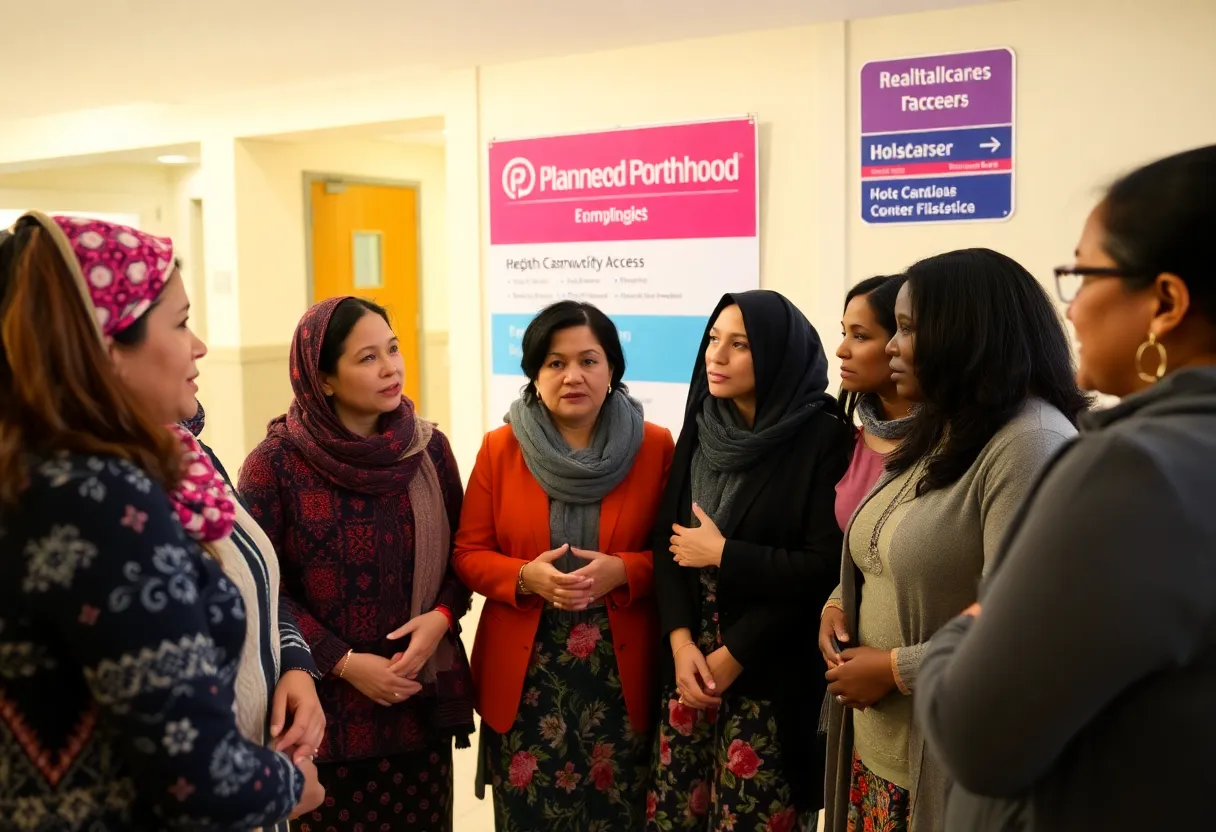News Summary
The U.S. Supreme Court’s recent ruling denies Medicaid patients the ability to sue state governments over the exclusion of Planned Parenthood from Medicaid programs. This 6-3 decision primarily affects low-income women’s access to reproductive healthcare, prompting concerns among advocates about the future of essential services like birth control and cancer screenings. The ruling could embolden conservative lawmakers to pursue legislative measures against organizations such as Planned Parenthood across various states, further complicating healthcare access for vulnerable populations.
Atlanta, Georgia – The U.S. Supreme Court has ruled that Medicaid patients cannot sue state governments over the exclusion of Planned Parenthood from Medicaid programs, marking a significant change in the landscape of reproductive healthcare access for low-income women. This decision was reached with a 6-3 vote along ideological lines and has far-reaching implications, especially in states with conservative-led legislatures.
The case stemmed from South Carolina, where former Governor Henry McMaster initiated efforts in 2018 to bar Planned Parenthood from receiving Medicaid funds, citing the organization’s provision of abortion services. While Planned Parenthood is widely recognized as a leading provider of abortion services, it also offers a multitude of other essential healthcare services, including birth control, cancer screenings, and STI testing.
Following the ruling, concerns have arisen regarding the accessibility of reproductive healthcare for low-income women. The decision is viewed by some advocates as a misinterpretation of existing Medicaid rights and sets a precedent that may embolden Republican lawmakers in other states to pursue similar measures against organizations like Planned Parenthood. In Georgia, specific remarks made by state lawmakers indicate support for the ruling, emphasizing a desire for taxpayer dollars to be directed away from funding entities that provide abortion services.
Critics of the ruling, including legal authorities in organizations focused on reproductive rights, have expressed disappointment, labeling the decision as unfortunate and detrimental to the rights of Medicaid recipients. The implications of this ruling could discourage healthcare providers from participating in Medicaid programs for fear of having their services questioned or defunded.
With the increased possibilities for legislative restrictions on healthcare funding, the ruling serves as a potential catalyst for similar actions across various states, particularly in the southeastern region of the United States. Georgia’s political landscape, which leans conservative, may see a surge of proposals aimed at limiting access to funding for reproductive healthcare providers, possibly impacting the future of services that are crucial for low-income residents.
As Planned Parenthood has not responded to inquiries regarding how they will adjust their Medicaid involvement following the ruling, many healthcare advocates are left uncertain about the organization’s next steps in providing care to patients who rely on government assistance for their health needs.
In other regional news, fireball sightings have been reported across multiple states, including Georgia, with speculation that the phenomenon could be caused by a meteorite or space debris. Additionally, community safety concerns have been heightened following the tragic shooting of a 17-year-old in Clayton County, prompting discussions about violence and security measures within local shopping areas.
The landscape of alcohol sales in Georgia is also evolving, as new regulations permitting liquor sales in Troup County will come into effect on July 1. However, Sunday sales will still be restricted to beer and wine, indicating a gradual shift rather than a complete overhaul of alcohol regulations in the state.
On a more positive note, the Atlanta Braves continue to be active in their commitment to addressing food insecurity in the community, distributing grocery boxes to families in need through their Home Plate Project. In sports, Georgia forward Asa Newell achieved significant recognition as he was selected as the 23rd overall pick in the 2025 NBA Draft, showcasing local talent in the national sports arena.
The Supreme Court’s ruling regarding Planned Parenthood funding represents a pivotal moment in the ongoing debates surrounding reproductive rights and healthcare access in the United States and could have long-lasting effects on Medicaid policies in Georgia and other states across the nation.
Deeper Dive: News & Info About This Topic
HERE Resources
Supreme Court Weighs in on Planned Parenthood’s Medicaid Funding Lawsuit
Missouri Abortion Clinics Reopen: A New Chapter in Access to Services
Additional Resources
- Atlanta News First: Georgia leaders mixed on Supreme Court’s ruling on Planned Parenthood Medicaid
- Wikipedia: Medicaid
- AJC: Faye Wattleton on her historic tenure at Planned Parenthood
- Google Search: Planned Parenthood
- WSBTV: Planned Parenthood fundraiser brings in $170K
- Encyclopedia Britannica: Planned Parenthood
- Clarion Ledger: Planned Parenthood Southeast event following funding freeze
- Google News: Georgia Planned Parenthood

Author: STAFF HERE ATLANTA WRITER
The ATLANTA STAFF WRITER represents the experienced team at HEREAtlanta.com, your go-to source for actionable local news and information in Atlanta, Fulton County, and beyond. Specializing in "news you can use," we cover essential topics like product reviews for personal and business needs, local business directories, politics, real estate trends, neighborhood insights, and state news affecting the area—with deep expertise drawn from years of dedicated reporting and strong community input, including local press releases and business updates. We deliver top reporting on high-value events such as vibrant music festivals like Shaky Knees and Music Midtown, major cultural celebrations including Dragon Con and the Atlanta Film Festival, and iconic sporting events like the Peachtree Road Race. Our coverage extends to key organizations like the Metro Atlanta Chamber of Commerce and the Atlanta Convention & Visitors Bureau, plus leading businesses in logistics, beverages, and retail that power the local economy such as Delta Air Lines, The Coca-Cola Company, and The Home Depot. As part of the broader HERE network, including HEREAugusta.com and HERESavannah.com, we provide comprehensive, credible insights into Georgia's dynamic landscape.





